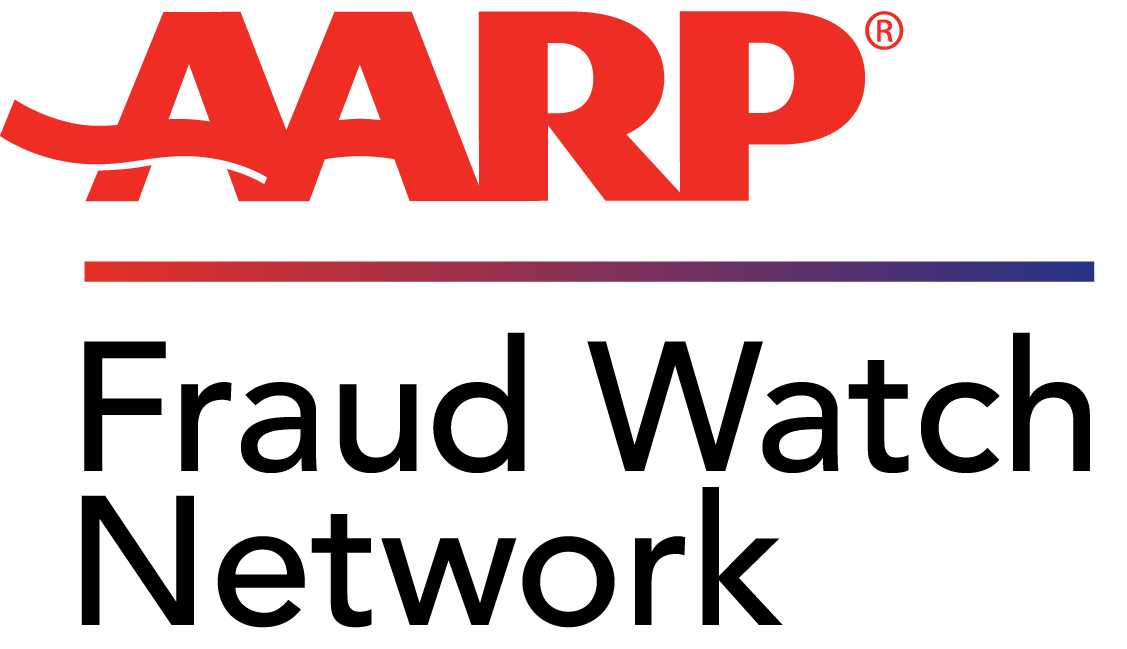AARP Hearing Center

Did you know that someone’s identity gets stolen every two seconds? The AARP Fraud Watch Network provides you with tips and resources to help you spot and avoid identity theft and fraud so you can protect yourself and your family. Our watchdog alerts will keep you up to date on con artists’ latest tricks. It’s free of charge for everyone: AARP members, non-members, and people of all ages. Be a fraud fighter! If you can spot a scam, you can stop a scam. Report scams to local law enforcement. Contact the AARP Fraud Watch Network here at www.aarp.org/fraudwatchnetwork for more information on fraud prevention.
The AARP Fraud Watch Network is:
An Educator: Get real-time alerts about the latest scams, tips on how to spot them, and the inside scoop on how con artists think so you can outsmart them before they strike.
A Watchdog: Our nationwide scam tracking map gives you access to a network of people who've spotted scams and the opportunity to pass along your own experiences, so together we can beat con artists at their own game.
A Resource: Get connected to a real live person trained in how to avoid fraud and advise you if you or a loved one has been scammed by calling our fraud hotline or attending a forum in your community.
Free for Everyone: Anyone, of any age, can access our resources at no cost.

COVID Grandparent Scam
Since the start of the coronavirus pandemic, scam attempts have skyrocketed across the country. While the volume has increased, the types of crimes have largely remained the same, albeit with a COVID-19 twist. One of the most prevalent scams right now is the “grandparent scam” where an impostor claims to be a grandchild in urgent need of financial help because they are sick with the coronavirus.
According to the FBI, victims in New Jersey and New York alone have lost $1 million to the grandparent scam in recent months. If you get a call from a grandchild or someone claiming to be with your grandchild in urgent need, hang up and call your grandchild on a known number, or another relative who would know their whereabouts. Then report the scam to authorities at ftc.gov/complaint.

Door-To-Door Scams
Warm weather brings with it door-to-door solicitations. Be cautious anytime a stranger comes knocking, especially if the visitor is trying to sell you goods or services. Protect against bad actors by refusing to do business right on the spot. Always ask for credentials and check references of anyone seeking to do work for you. If you agree to the visitor’s offer, pay by check or credit card, or arrange financing. Paying in cash can be dangerous – you may lose the cash and not get the promised goods or services. And always insist on a written contract before you pay anything and before work begins.

Extortion Scams
According to the FBI, 2020 has seen a spike in extortion scams. These are typically e-mail messages that include a password you’ve used in the past. The sender claims that they have installed malicious software on your computer, and have proof you’ve been frequenting adult websites. They warn they will share that proof with all of your email and social media contacts unless you send money – typically in the form of hundreds of dollars of Bitcoin.
True or not, this fear tactic works. But this is really just a phishing expedition using data obtained from a prior data breach. The hope is you’ll see an old (or current) password and believe the message must be true and pay up. Don’t click on any links or respond to the scam message. But do report it to authorities at ftc.gov/complaint.

Rental Property Scams
Renting a home or apartment is a big expense and an even bigger one when the rental is a scam. Scammers look for easy cash by collecting the first month’s rent, a deposit, and application and background check fees and then bolt before handing over the keys. Numerous versions of rental frauds abound – some are bait-and-switch while others will attempt to rent out properties that are already leased or otherwise unavailable.
Renters signing leases and putting down money based on units similar to a model unit is on the rise, and would-be renters are losing hundreds or even thousands of dollars. When renting a new place, watch out for scammers who ask you to sign before seeing anything or request payment via wire transfer, peer to peer apps or cash. Do your research on the property and owner, and read agreements carefully.































































